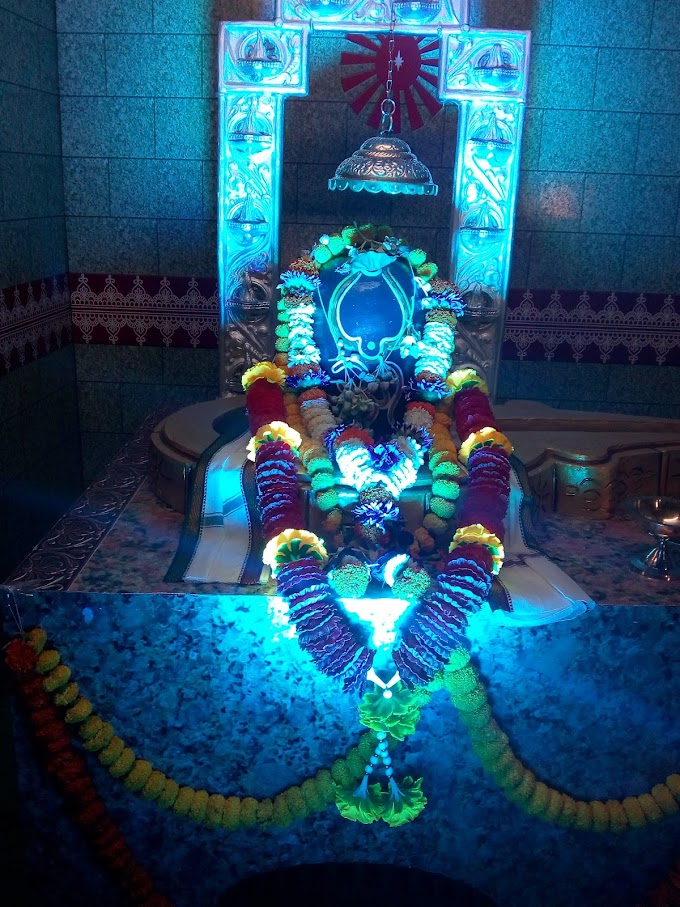DOWRY
The dowry is one of the parts of the marriage in India and this dowry tradition is derived from the ancient Indian Culture. If
we see the history or past of Indian Culture, the dowry tradition was during
the Vedic period and if we see from the Mythology side, the dowry tradition was
available during Ramayana and Mahabharat epic. Therefore the dowry tradition is
not a new for Indian. This system is now a tradition and the relative of Bride
is bound to give some dowry to the family of bridegroom.
MEANING OF DOWRY
The
dowry is given by the family of bride to the family of bridegroom during the
marriage ceremony. The dowry is the gift in shape of money or articles given
by the family of Bride.
Definition of dowry has been defined under The Dowry Prohibition Act , 1961.
In this
Act, dowry means any property or valuable security given or agreed to be given
either directly or indirectly
(a) by one party to a
marriage to the other party to the marriage; or
(b) by the parents of
either party to a marriage or by any other person, to either party to the
marriage or to any other person;
at or before or any time after the
marriage in connection with the marriage of the said parties, but does not
include dower or mahr in the case of persons to whom the
Muslim Personal Law (Shariat) applies.
Today, the practice has
decreased in developed countries and urban areas. The family dispute like
domestic violation, abuse of women, dowry are still continued in some part of
world like India, China. Africa etc.
The concept of dowry tradition is derived from
ancient civilization. But during that time this process was positive sense. The
people are mainly farmer. The farmer’s gal marry to a farmer’s groom. They knew
the status of farmer’s, and importance of a male person’s. The male person was
the source of income and the decision taking person. The nature and conduct is
always vary from person to person. During the marriage time, the bride’s family
gifted some household articles for the purpose of smooth running for some time
(till regularise in her in-laws house). I have seen in some books that in
Roman, the dowry tradition was existed. The head of the family sold his
property, mortgaged the property for giving the dowry to the in-laws family of
his daughter’s. and the widow woman became a concubine to a rich person who
could solve her financial problem and the dowry
was an important sign of her gratitude for becoming a member of her husband's
family.
The said gifts were carried
out in a big wooden box which was called as
“HOPE CHESTS”, in Oriya “SINDUKA”. The tradition of “Sinduka” or “Hope
Chests” was continued for some period because non-availability of material box and easy available of wooden
box.
Gradually increase the dowry tradition day by day and the said tradition is reached at present stage. The family of a bride was
given and confined with household article but now the family of groom is
begging / demanding their want which are short fall in their house. If anyone
see then one thing will come to the mind that instead of bringing the bride to
their house, they sale their son with the hand of in-laws. They demand as per
their want and shows the eligibility, quality of their son and explain to the
family member of bride that whatever you are giving, those are less in-font of
groom. I have seen this type of situation.
DOWRY
IN ANCIENT WORLD:-
The
Code of Hammurabi is a written law of Babylonia
(Mesopotamia) and a collection of rules of that period. Code of Hammurabi or Hammurabi’s Code was
craved on the black stone which was discovered in 1901. In the Mesopotamia
civilization, the dowry tradition was existed. As pr the Code of Hammurabi,
prior to marriage, it was necessary to execute a agreement for marriage. The details
regarding the marriage, dowry, divorce etc were explained in the said black
stone. That means the tradition of dowry was existed and the people were adopted
the same procedure. From the Code of Hammurabi, it has been disclosed that the
dowry tradition are derived from Mesopotamia civilization.
During the ancient Greek and Roman, the dowry had
been a part of civil law and was important components in the society also. In the
ancient Egypt culture, the dowry
tradition was not adopted except Mesopotamia civilization. The women had been
legally allowed to own property and manage their own affairs
ANCIENT INDIA:-
The mythology says that in the ancient
civilization of India was the tradition of dowry. The same tradition has been
found in the Ramayana and Mahabharata. When
a gal go to her in-laws house, the father of the gal sent a huge quantity of
gifts for her in-laws family but that tradition was for elite class. Subsequently when the Moguls came to
rule the India, the tradition was decreased. The Indian dowry system
became more extensive under the British ruling period. And the same tradition
is still continuing and the groom family have been demanded the dowry.
Give
your daughter to the upper status (financial stable family) and bring the bride always lower status.
.....................
Kautilya Chanakya
Dowry
has become a great nuisance in the present day Indian society still everybody
need dowry and only the person who is suffering due to dowry, the said person
only protest this tradition. Only for this tradition, the parents of the gals
show the difference between boy and gals.
Now
days the family member of bridegroom is asked directly to the bride family. But
sometimes people on the bridegroom’s side invent various methods and demand
dowry:-
1) Your daughter herself will use all the electronic
gadgets, TV set, washing machine, refrigerator, and our have old version.
So you give such things.
2) Our son is like as your son and your daughter is
like as our daughter. Whatever you will give that all things are also your
son’s.
3) We do not need anything’s but whatever you will
give that all are to yours daughter’s.
4) It is our tradition that you should give return
gift to all guests of our side on the wedding day, either money or gold coins
or clothes.
5) Our son has purchased the flat and the said flat
required some interior design. So need you can sponsor some financial help.
6) Your son-in-law is residing at son and so place on rent of you may provide flat that will be good and by the way you daughter will stay in that flat.
7) We have some tradition that our daughter in law should
travel by car. So if....... possible you can give that.
8) Our son is working in MNC company and his salary is
Rs.x,xx,xxx/- so you should give a car (XUV).
9) You should offer to you daughter for honeymoon
package for USA or UK after marriage.
10) Our son purchase a flat and everything is there
except household which you should offer to you daughter for her comfort.
11) We have no objection whatever you will give to your
daughter but it is our tradition that you should give some gifts to your
daughter.
12) We have no demand but entire expenses of marriage you should bear.
13) We have spent a lot of money on our son's education. He is brilliant student and in this area no one can be compared with him and whatever you are giving that are less in-front of his qualification.
14) You daughter is not much educated and she will be
only house-wife. Therefore you should give some gift to your daughter.
15) Your daughter is looking black and as out son’s
choice we are bound. You should give some gift which we cannot deny.
16) We have every thing except permanent residence and
you should give to your daughter.
By this type of idea, they beg the money or articles
from the side of bridegroom.
Now-a-days in some bridegroom are opposing the said demand and rejecting the
bride who make the demand to her parents. The Government of India is advertised
that the demand made by the bride is illegal and don’t support they. And the
Government has establish the separate cell dowry complain.
The tradition of dowry have been reduced due to increase
of education, awareness, and compassion. So, Indian people's thoughts are changing regarding dowry system. In some case the family of
groom is fearing to take dowry and dowry threatening. After the Dowry Prohibition Act , 1961
come into force, the general people become aware. And now a day’s, everybody
have maximum facility to enjoy the luxurious life like car, TV, AC, washing machine
etc. Therefore in some case the groom family does not think about the dowry,
only search a good gals who can manage the family. The nature of the groom also automatically
change and in case of demand make by his family member, on subsequent time the
groom may think about the happy life of bride.











